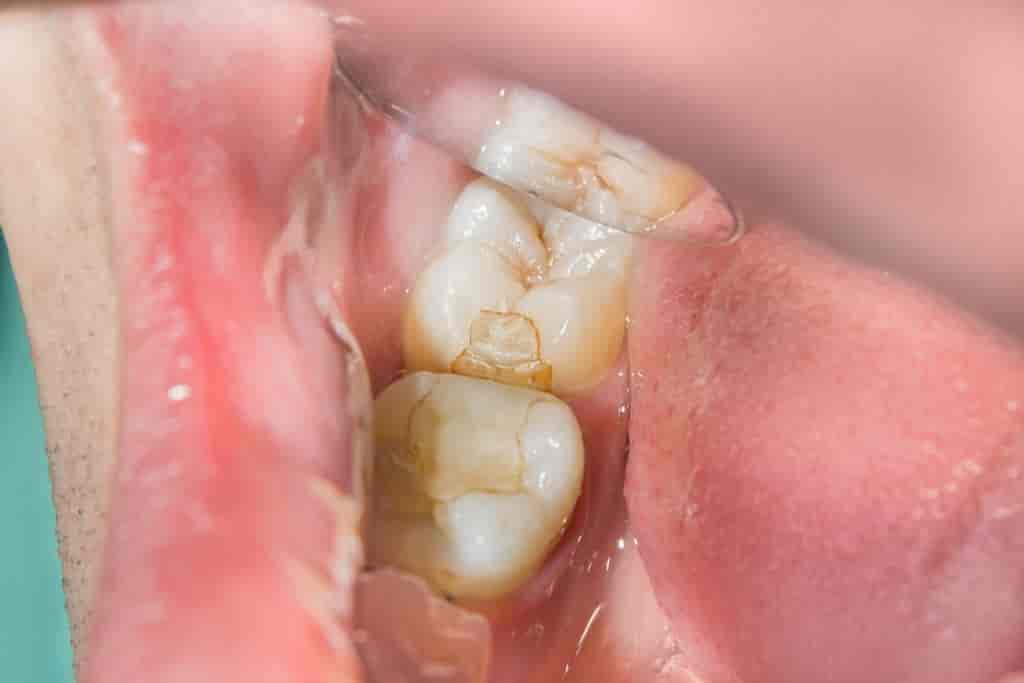These days, we often find ourselves craving pastries and desserts. While the sweet taste brings back some delightful memories of our childhood, how many of these sweets do we really need? With an excess of sugar in our diet, we can get addicted to this substance and have trouble controlling our cravings.
The food industry uses sugar to give its products that distinctive taste. But by consuming too much of this sweet stuff, you can pack on unnecessary calories and lead to obesity and diabetes, and many other health issues.
It’s difficult to avoid sugar nowadays. It is found in every processed food and even in some healthy ones like vegetables. Unknowingly, we eat way too much of it as syrups, soft drinks, candy, cereals, and even vegetable sugar.
Most people are surprised to learn the many unhealthy physical changes that occur when they are over-consuming sugar. We have put together some of the warning signs the body demonstrates when it is over-consuming sugar.
So let’s discover together the signs that your body gives when it detects too much sugar! (open the next page to catch high sugar intake signs before your health deteriorates.)
9. Muscle and joint pain
Worried about how many days of exercise your muscles are getting? Do you feel sore and stiff? This might be a sign that your muscles and joints are suffering from inflammation.
Your body is telling you that exercises and regular activities are not getting enough of your attention. It wants you to take daily walks, go on long drives, and do other things that will help your muscles and joints to stay healthy.
Studies have shown that eating a diet of processed sugar increases the number of toxins that cause swelling or inflammation, including AGEs and this can lead lead to diseases such as diabetes and heart disease. These toxins are broken down by the cells in our bodies and released into the bloodstream.
The more sugar you eat, the more damage it causes to your body. When you consume a high amount of sugar, your body is unable to break down the harmful AGEs and cytokines (immune system messengers). As a result, they cause damage to the joints and the rest of your body, leading to arthritis, heart disease, cataracts, dementia, Alzheimer’s disease, or wrinkled skin.
8. The urge to eat sweets and other sugary foods
Unlike protein, sugar is very digestible, so it causes a sudden surge of sugar in the blood. It is naturally addictive since it is recreational and provides a euphoric feeling. Studies have shown that dopamine transports signals between the brain and the body. Dopamine is one of the most important neurotransmitters in the brain plays a critical role in motor function, mood, sleep, sexual desire, and appetite.
This neurotransmitter is released into the body system whenever we eat delicious food, such as chocolate cake. The release of serotonin is responsible for giving us a feeling of pleasure and satisfaction that we sometimes want to experience over and over again.
Rather than being a fuel for your brain, sugar is actually a rewarding substance that causes the body to crave it. Although sugar isn’t very filling, it does contain certain nutrients such as vitamins and minerals. If you find that you are eating too much sugar, try to cut down on the amount you eat. You can also make healthier choices in your diet, such as eating fruits and vegetables instead of sweets or processed grains.
7. Energy highs and lows
If you have a higher than normal release of hormones such as adrenaline, dopamine, or serotonin, your body may not be able to control your blood sugar level properly. This can lead to energy highs and lows. If you eat a candy bar, the body converts the sugar in it into glucose in your bloodstream, giving you a quick rush of energy.
To re-energize your cells, the pancreas secretes insulin, which directs glucose away from the blood and into the cells, leading to a significant drop in blood sugar. This long-lasting sugar crash leaves you hungry for sweets.
To avoid high and low blood sugar levels, replace sugary treats with lean proteins and healthy fats. Eating unprocessed foods will help you maintain the right energy level regardless of your blood sugar level.
6. Breakouts Around Your Mouth and Chin
If you’re experiencing acne, it is time to consider what you eat. Too much sugar in your diet can cause inflammation that leads to acne breakout around the mouth and chin. If you eat too much sugar, your skin will only be damaged further.
When you eat sugar, the pro-inflammatory substances released by it attach themselves to the collagen and elastin – the proteins that give your skin its elasticity and youthful appearance – and break them down.
5. Weight gain
When you gain weight, it can be a sign that your sugar intake is too high. It’s not the end of the world, but your pants probably won’t fit well anymore. A few extra pounds might be easy to do in a week or two, but if you gain a few pounds from eating too much sugar, it can be a sign you need to change how you eat.
Excess sugar in your body causes your blood glucose levels to increase. This can cause insulin production in your pancreas to increase and turn excess sugar into fatty acids. These fatty acids are stored in your fat cells, which are found in your belly, thighs, and hips.
4. Tooth decay
You’ve heard it a thousand times from your parents about the negative effects of sugar, but you’ve always dismissed it as needless scaremongering. After a sweet treat, the sugar in your mouth starts a chain reaction that ends up causing cavities.
Tooth decay is caused by bacteria that feed on sugar. The bacteria multiply in the mouth, and the acids they produce cause tooth decay. As they eat sugar, the bacteria also digest the healthy bacteria that are present in saliva. In this way, the bacteria get more food and multiply, which further increases their acid production and causes a cavity.
3. Dehydration & feel of thirsty
When you eat too much sugar, A dry mouth and intense thirst happen, and your body is tricked into thinking it’s in a diabetic coma, so it dumps excess water into the bloodstream through the urine. This condition occurs when the body moves water out of cells as glucose is consumed. This means the body needs more water to make up for the situation, causing you to reach for a drink
2. Bloating, Gassiness, and Abdominal Discomforts
In order to combat bloating and gassiness, you should pay attention to your diet. The food you eat can directly affect your digestive system and cause bloating.
Many people believe that excess gas is caused by the normal passing of gas and food through your intestines. In reality, it’s very common to be bloated following an eating binge. The more foods you eat, the more gas is produced. Intestinal bacteria break down this excess sugar in the large intestine, leading to bloating and distention.
As bloating is a sign of having too much-undigested food in the stomach, there are two ways to go about it. First, you can avoid eating large quantities of sugary foods altogether. This will help reduce bloating and cramps. Secondly, you can eat high-diet foods like green vegetables, whole grains, and certain types of beans that have a low glycemic index rating.
1. lack of focus, especially after a meal
Brain fog is when the brain feels cloudy and confused. It’s caused by a lack of blood sugar, which is what fuels the brain and keeps it working properly. In order to keep your brain functioning well, you need to control your sugar levels. Managing your sugar levels will allow you to think clearly again.
Keeping a healthy blood sugar level is important to maintain brain function. People with diabetes can suffer from brain cell damage due to high blood sugar or low blood sugar, depending on their diet.









